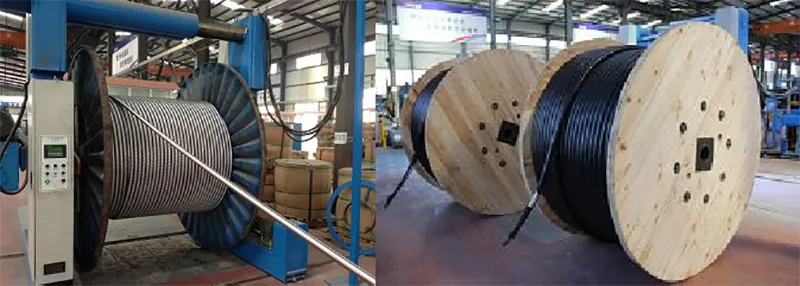Nov . 25, 2024 13:10 Back to list
ground cable wire
The Importance of Ground Cable Wire in Electrical Systems
Ground cable wire plays a vital role in ensuring the safety and efficiency of electrical systems. It provides a crucial pathway for electrical currents in the event of a fault, helps to prevent electrical shock hazards, and facilitates the overall stability of electrical networks. Understanding its functionality, installation requirements, and maintenance can significantly impact the reliability of various electrical applications, from residential wiring to industrial operations.
What is Ground Cable Wire?
At its core, ground cable wire is a conductive wire that serves as a connection to the Earth, acting as a safety measure against electrical faults. This wire is typically made from copper or aluminum due to their excellent conductivity and durability. The primary purpose of a ground wire is to direct stray electrical current safely into the ground, thereby preventing potential hazards such as electrical shock or fire.
In most electrical systems, the ground wire is usually green or bare (uncoated) to distinguish it easily from other wires. Its role becomes particularly critical when electrical equipment malfunctions. For instance, if a faulty appliance develops a short circuit, the ground wire provides a direct path for the excess current, preventing it from passing through the human body or igniting surrounding materials.
The Role of Grounding in Electrical Safety
The importance of grounding cannot be overstated. In residential areas, improper grounding can lead to various problems, including equipment damage and personal injuries due to electrical shocks. Ground cable wires help ensure that excess electricity is safely channeled away from sensitive appliances and outlets. Electrical codes, such as the National Electrical Code (NEC) in the United States, mandate proper grounding practices to enhance safety in residential and commercial buildings.
For industrial settings, the stakes are even higher due to the presence of heavy machinery and sensitive electronic equipment. Ground cable wires are often integrated into systems to minimize noise interference, providing a stable reference point that improves the performance of communication and control systems.
ground cable wire

Installation Considerations
Installing ground cable wire requires adherence to strict guidelines to ensure maximum safety and efficiency. The wire must be appropriately sized according to the electrical load and local code requirements. Typically, the thickness of the ground wire is determined based on the size of the circuit it supports.
Moreover, the grounding system should connect to a grounding rod or plate installed underground, allowing a stable connection with the Earth. In some cases, multiple ground connections may be required, especially in facilities that house high-voltage equipment. It is also essential to avoid common installation mistakes, such as using undersized wire or failing to establish a solid earth connection, as these oversights can lead to dangerous situations.
Maintenance and Inspection
Regular maintenance and inspections are crucial to ensure that ground cable wires remain effective throughout their lifespan. Over time, environmental factors such as corrosion, moisture, and physical damage can compromise the integrity of grounding systems. Periodically checking connections, and replacing any damaged wires, ensures that the grounding system remains functional.
Additionally, grounding systems should be tested to verify that they provide adequate resistance and connectivity. Various testing methods, including resistance testing and earth ground testing, can help identify potential issues before they become significant problems.
Conclusion
In conclusion, ground cable wire is an indispensable component of electrical safety and efficiency. It acts as a protector against electrical faults, safeguards both equipment and individuals, and enhances the reliability of electrical systems. Proper installation, regular maintenance, and adherence to safety guidelines are essential in achieving optimal performance. As technology advances and electrical applications become more complex, the importance of effective grounding will only continue to grow, making it a vital area of focus for electrical engineers, electricians, and safety professionals alike. Understanding ground cable wire's significance is crucial in our increasingly electrified world, ensuring safety and efficiency now and into the future.
Share